A sparse forest, a gate wide open. The wings only hang on rusty hinges. The guardhouse has been abandoned for ages. Rubbish is piling up, the walls are overgrown with fresh greenery.
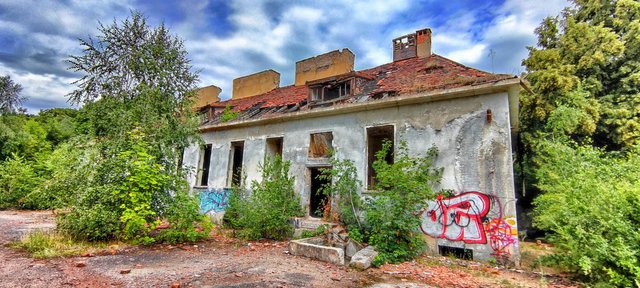 Rhe ruin of a world power
Rhe ruin of a world power
The former headquarters of the Soviet Army in Poland can hardly be recognized - the huge barracks in Legnica, the former Liegnitz, was the most important location of the Soviet Army outside the Soviet Union and East Germany during the Cold War and an important control center of the Warsaw Pact, which from here in the Third World War would have been drawn against NATO.
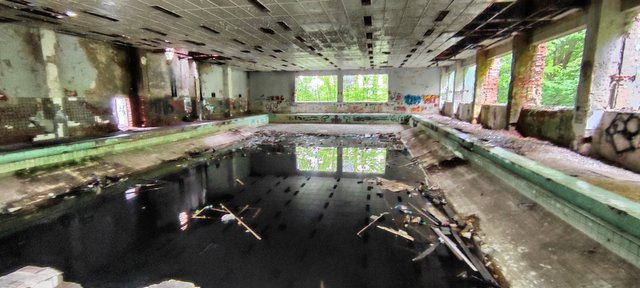 The ruined swimming pool
The ruined swimming pool
The blood red heart
Therefore, it was all secret and shielded several times. Large parts of the urban area of Legnica were considered a restricted zone for the Polish population.
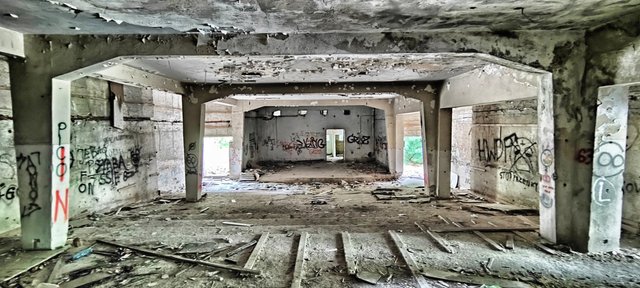 At the bunker
At the bunker
The Soviet military administration took over around a third of the real estate in the urban area, which popularly became “Little Moscow” (Mała Moskwa). Not even the Polish authorities had access to this secret blood red heart of Poland
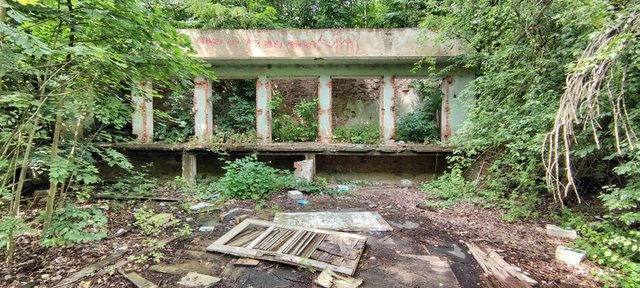 Remainings of... something cruel
Remainings of... something cruel
Today the city is open again, but not the premises of the headquarters of the Northern Group of troops of the Soviet Army - until it was relocated to Warsaw and Świdnica in 1984 - as well as the High Command of the Western Direction of the Warsaw Pact, which also housed the 4th Air Army of the Soviet Air Force.
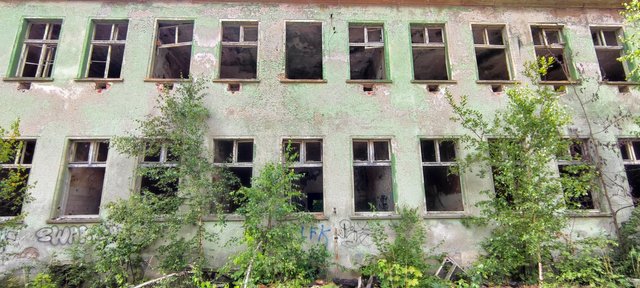 One of a very few barracks
One of a very few barracks
No one is allowed
Officially, no one is allowed to enter the area from which Soviet troops set out for Czechoslovakia in August 1968 to crush the revolution for socialism with a human face. Alexander Dubček, the leader of the Czech uprising, was arrested by the Russian occupiers in Prague on August 21st, taken to Prague airport in an armored personnel carrier and flown right here, to the headquarters of the Soviet Eastern Bloc forces.
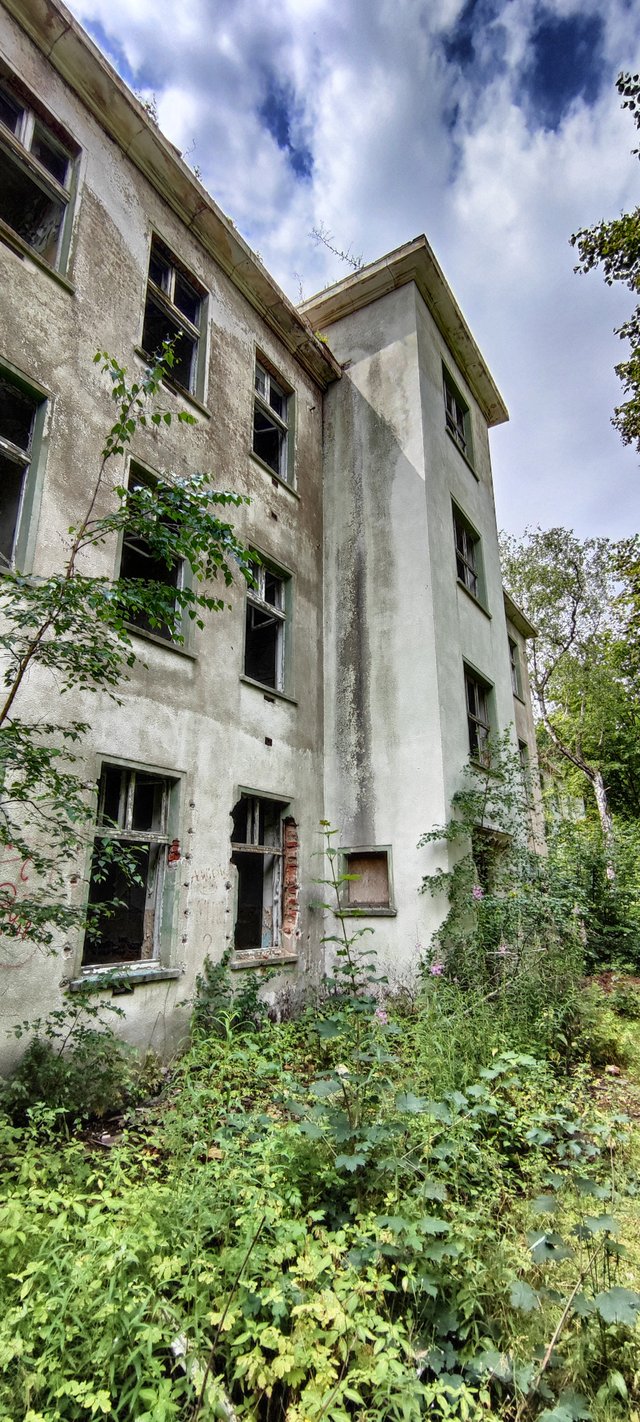 At the backyard of the hospital
At the backyard of the hospital
He was brought to Moscow on August 23rd. Under threats, he and other members of the party leadership sign a certificate of surrender. All reforms will be withdrawn. The “Prague Spring” is over.
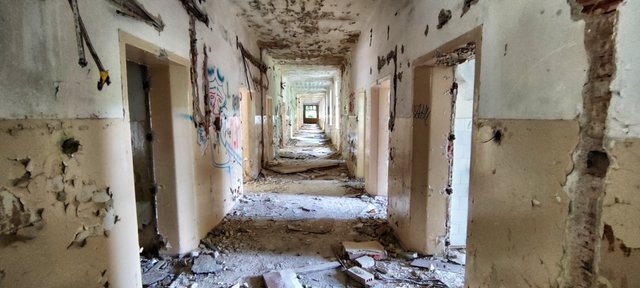 In the hospital - it's build by the Wehrmacht and 200 meters long
In the hospital - it's build by the Wehrmacht and 200 meters long
The Russian occupiers will remain in Legnica for another 25 years. The former garrison town of the German Wehrmacht became a symbol of Soviet presence and power in Poland, a place where history and politics were uniquely intertwined. Where trees grow today were parade grounds back then. Where bushes grew, soldiers sheltered under the shouted orders of their officers. At the hospital we recognized a painting in german: "The sick - the life, the people and the fatherland - it's a remaning from the Wehrmacht era. The russian army has overpainted it, but the time opened the wound again.
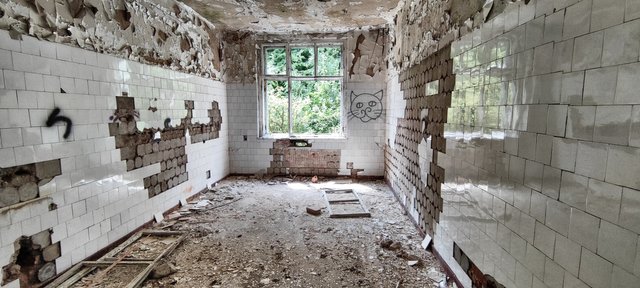 The bathing room
The bathing room
Security for supply lines
In 1945, Soviet military units of the Second Belorussian Front advanced into Polish territory. After the victory over Germany, they simply stayed here as Army Group North of the Soviet Armed Forces without consulting their hosts. The Russians were concerned with securing supply lines for their troops stationed in Germany, but also with keeping the occasionally unruly Poles under control.
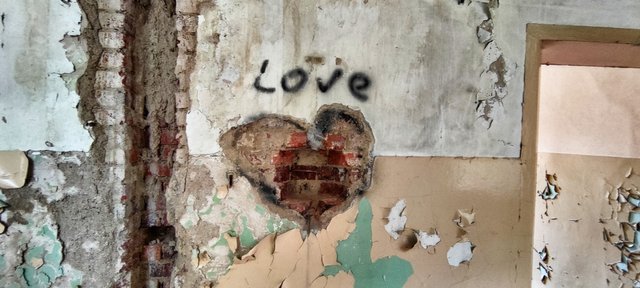 ;-)
;-)
After the defeat in the Cold War, Russian troops were withdrawn from 60 locations in Poland in 1993, where the soldiers with the red stars on their caps had been a familiar sight for decades. Left behind were empty Soviet garrisons and bases, maneuver areas and bunkers, especially in Lower Silesia.
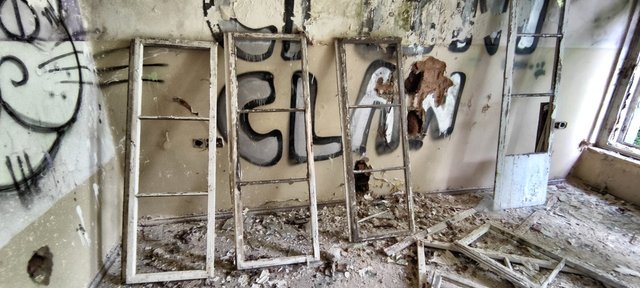 Someone tried to steal all the windows
Someone tried to steal all the windows
For three generations of local residents, encounters with the long columns of military vehicles and the deafening noise of aircraft taking off or landing had been a daily experience. Now nature took back the often completely ruined military areas that had made Poland a country that only appeared to be independent but was actually ruled by Moscow.
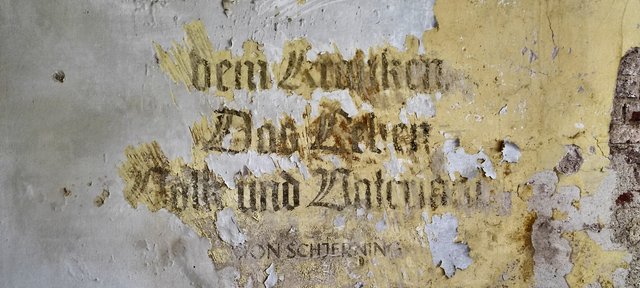 This means "The sick - the life, the people and the fatherland -it's a remainng from the german era
This means "The sick - the life, the people and the fatherland -it's a remainng from the german era
Against polish independence
It was probably no secret to anyone that the troops from the East would have been deployed not only in the event of a war against the NATO alliance, but also if the Poles had manifested their desire for state sovereignty too strongly.
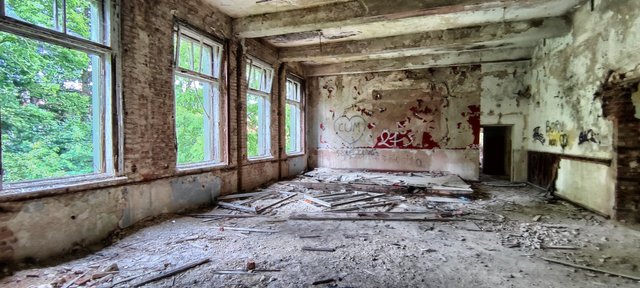 Mayba the bureau of a general or something else
Mayba the bureau of a general or something else
In Liegnitz (Legnica), where the high command of the Northern Group of the Soviet armed forces was located, you can still see why the former residence of the Silesian dukes was called “Little Moscow”. The uninvited guests from Russia could do whatever they wanted here; there was a parallel Polish and a Soviet world, of which only ruins and rubble can be seen today.
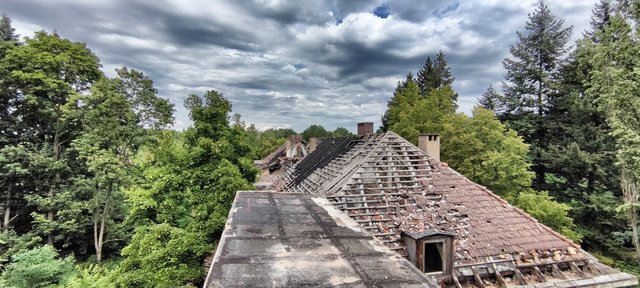 A view over the roofs
A view over the roofs
Where Colonel General Sarudin recently commanded two divisions, the large hospital still stands, and the communists even left a small church next to it.
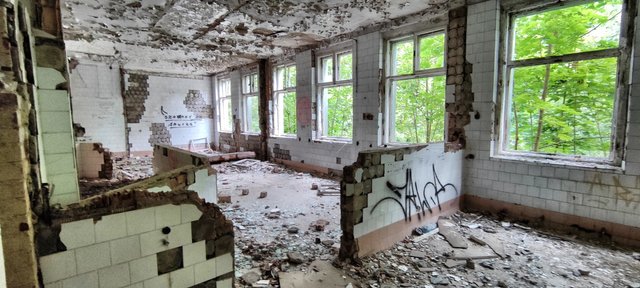 All is stolen and destroyed
All is stolen and destroyed
Destroyed swimming pool
But the large indoor swimming pool is almost destroyed, the windows are knocked out and the pool is leaking. All that remains in the Lower Silesian heath, which the German Wehrmacht discovered as a location in the 1930s, are only rudiments of the former power: here an officers' mess, used as a gallery by graffiti sprayers.
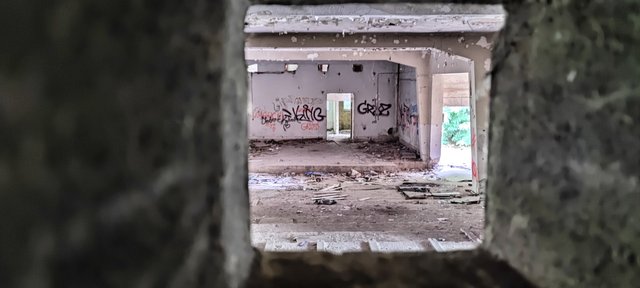 It's german Wertarbeit
It's german Wertarbeit
There are the long corridors of the command center. There are also a few garages and evidence of underground facilities. The heart of Soviet power in Poland hardly gives any indication that this is the strategic center of the Soviet Army from which the high command of the western direction of the Warsaw Pact planned to conquer all of Europe in the event of war.
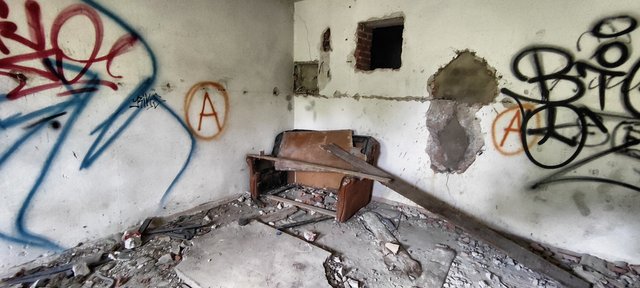 Have a seat for history
Have a seat for history
Luckily for the world, it never came to that. So nature can now slowly reclaim the area, completely in peace.
Thank you for reading and if you like my work please follow me on Hive, Travelfeed or Steem or visit my homepage koenau.de
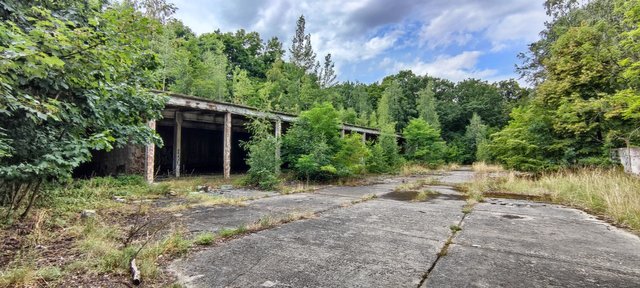 Garages without tanks
Garages without tanks
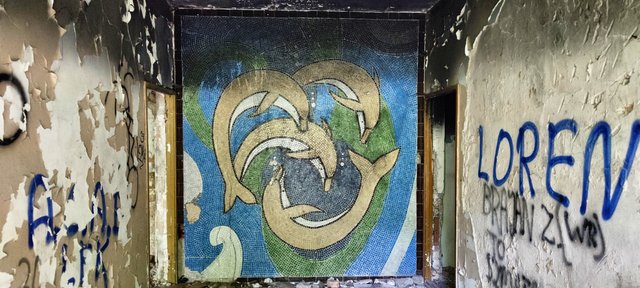 Art, made by russian soldiers
Art, made by russian soldiers
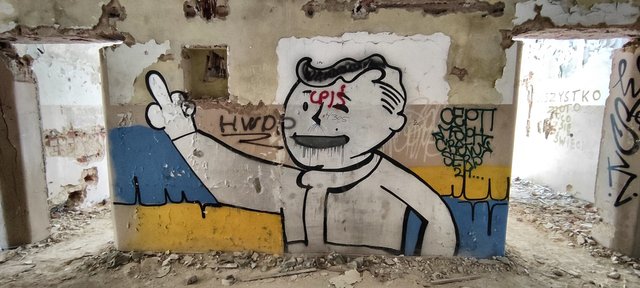 Seams like a painting for the Ukraine
Seams like a painting for the Ukraine
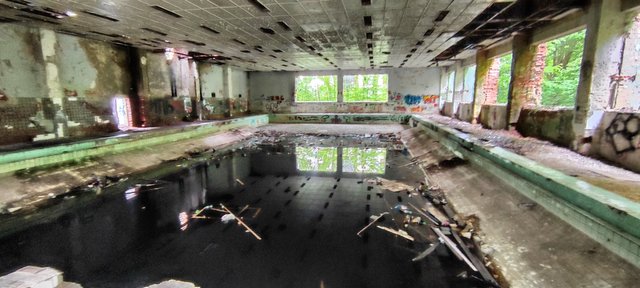 All the water comes from heaven now
All the water comes from heaven now
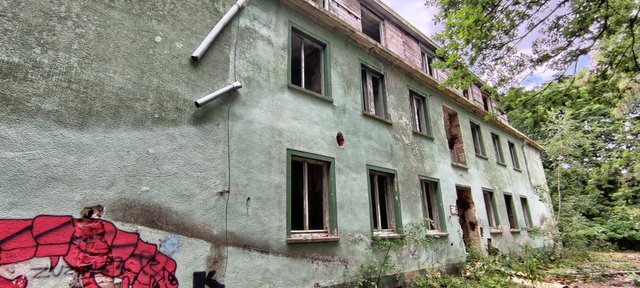 Another barrack
Another barrack
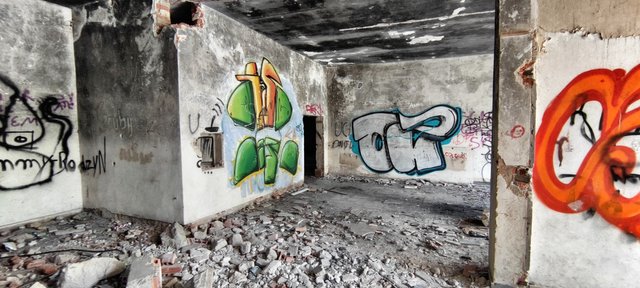
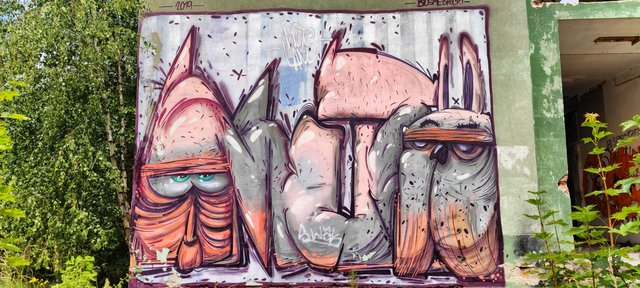 Ninja rabbits
Ninja rabbits
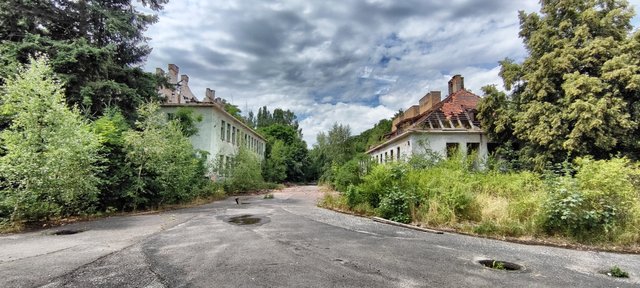 You have to watch for holes at the streets because all the manhole cover are stolen
You have to watch for holes at the streets because all the manhole cover are stolen
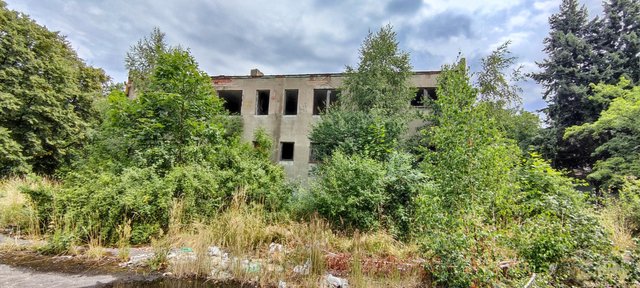 Nature fights back
Nature fights back
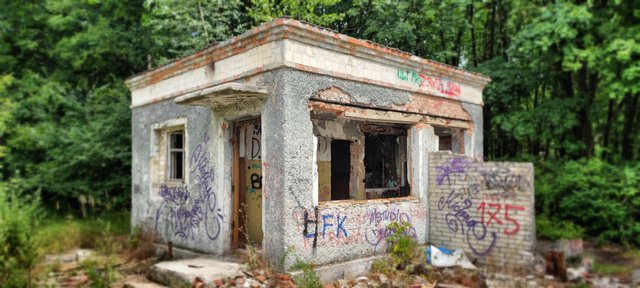 The guardhouse
The guardhouse
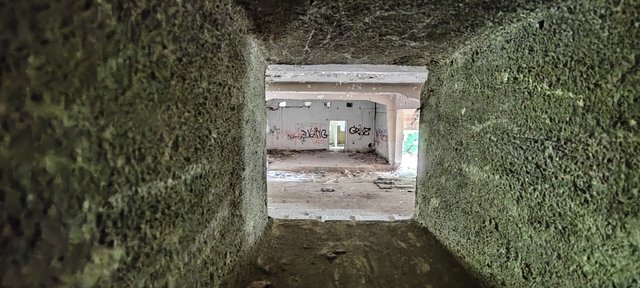
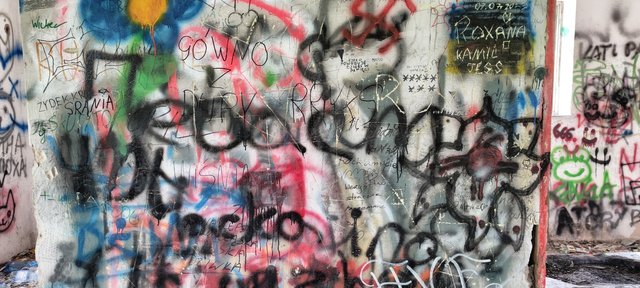
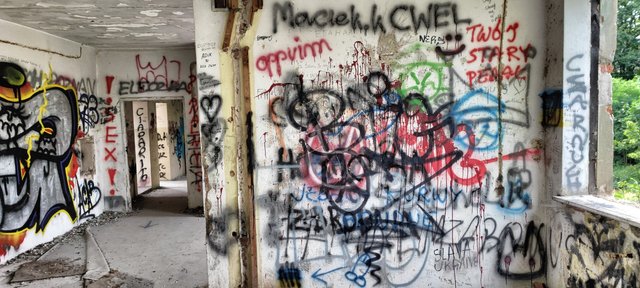 Officers Casino
Officers Casino
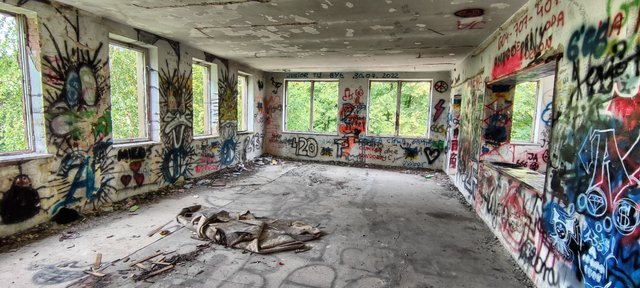 Same
Same
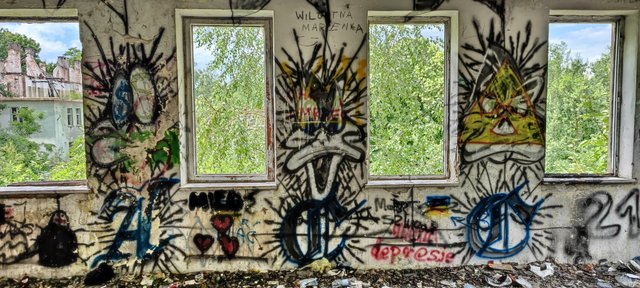
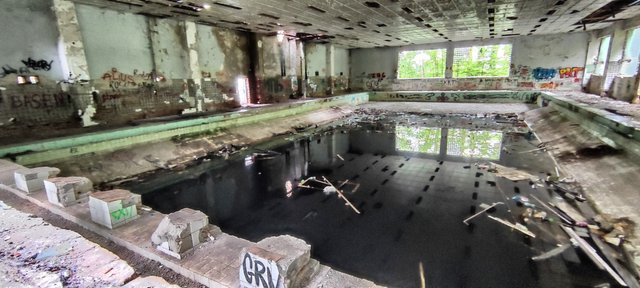
Congratulations @koenau! You received the biggest smile and some love from TravelFeed! Keep up the amazing blog. 😍 Your post was also chosen as top pick of the day and is now featured on the TravelFeed front page.
Thanks for using TravelFeed!
@for91days (TravelFeed team)
PS: TravelFeed is in social media to reach more people, follow us on Facebook, Instagram, and Twitter.
Downvoting a post can decrease pending rewards and make it less visible. Common reasons:
Submit